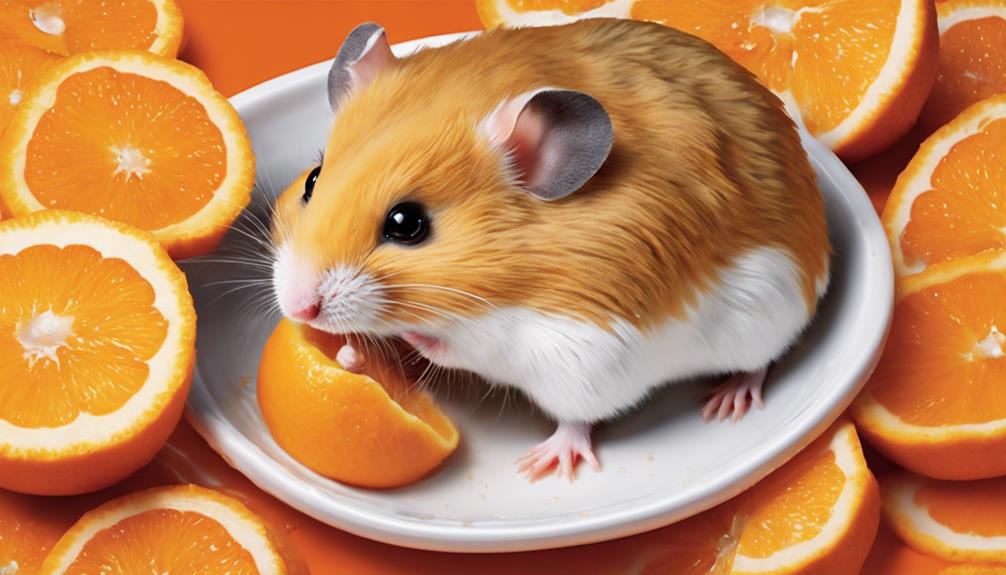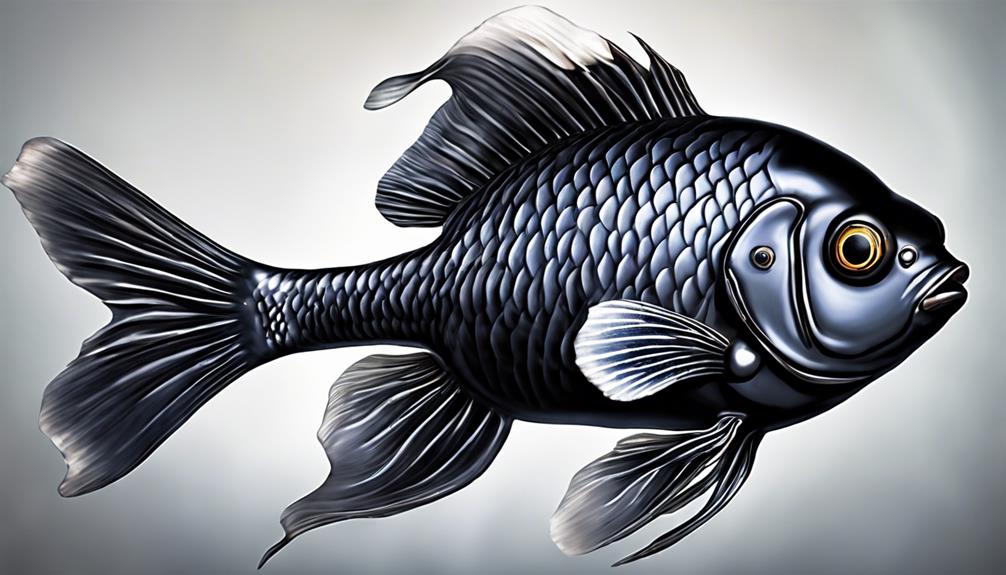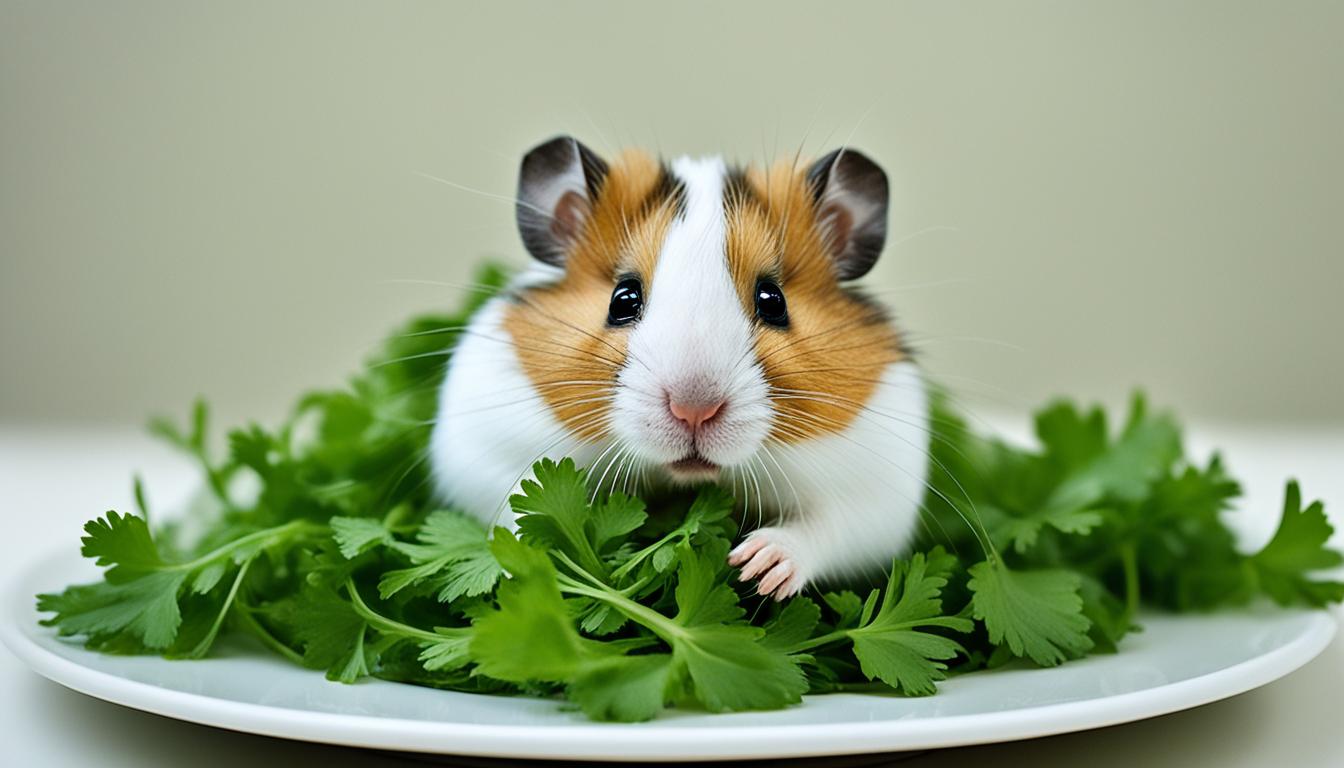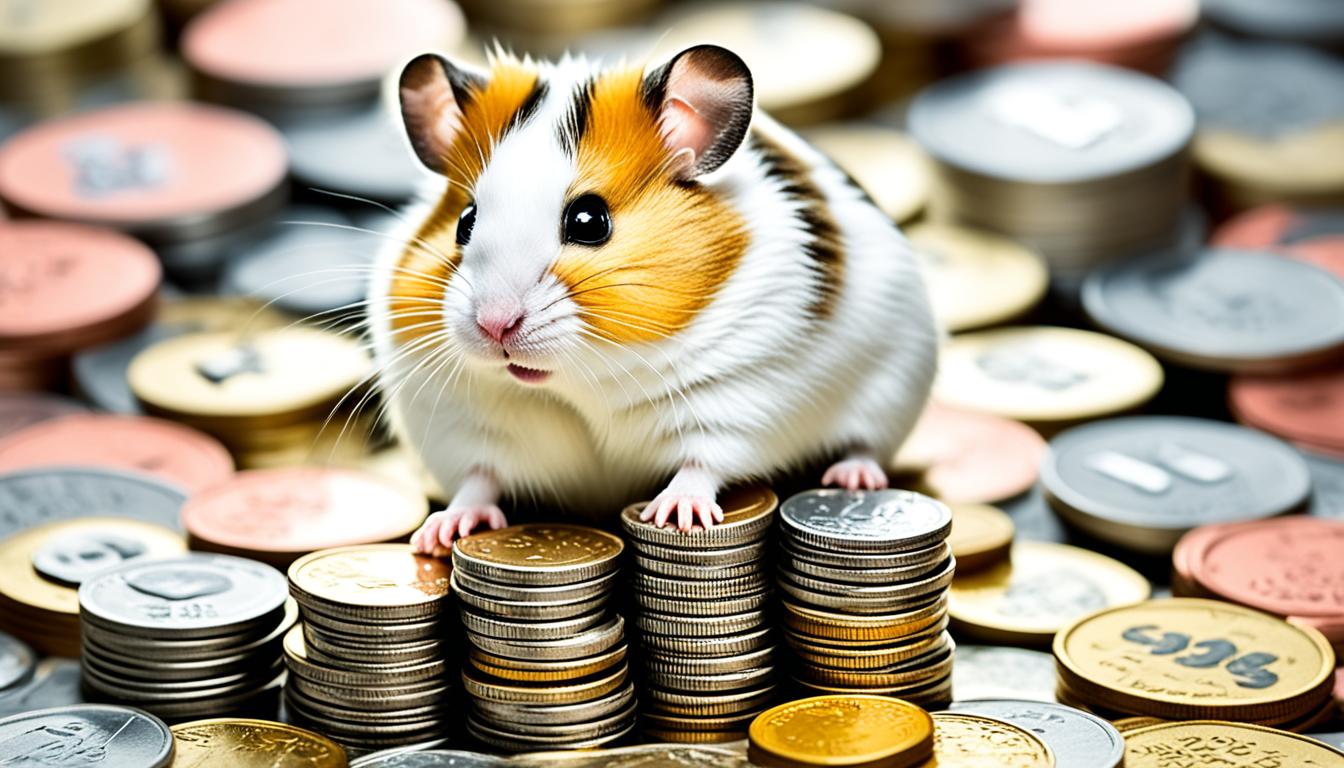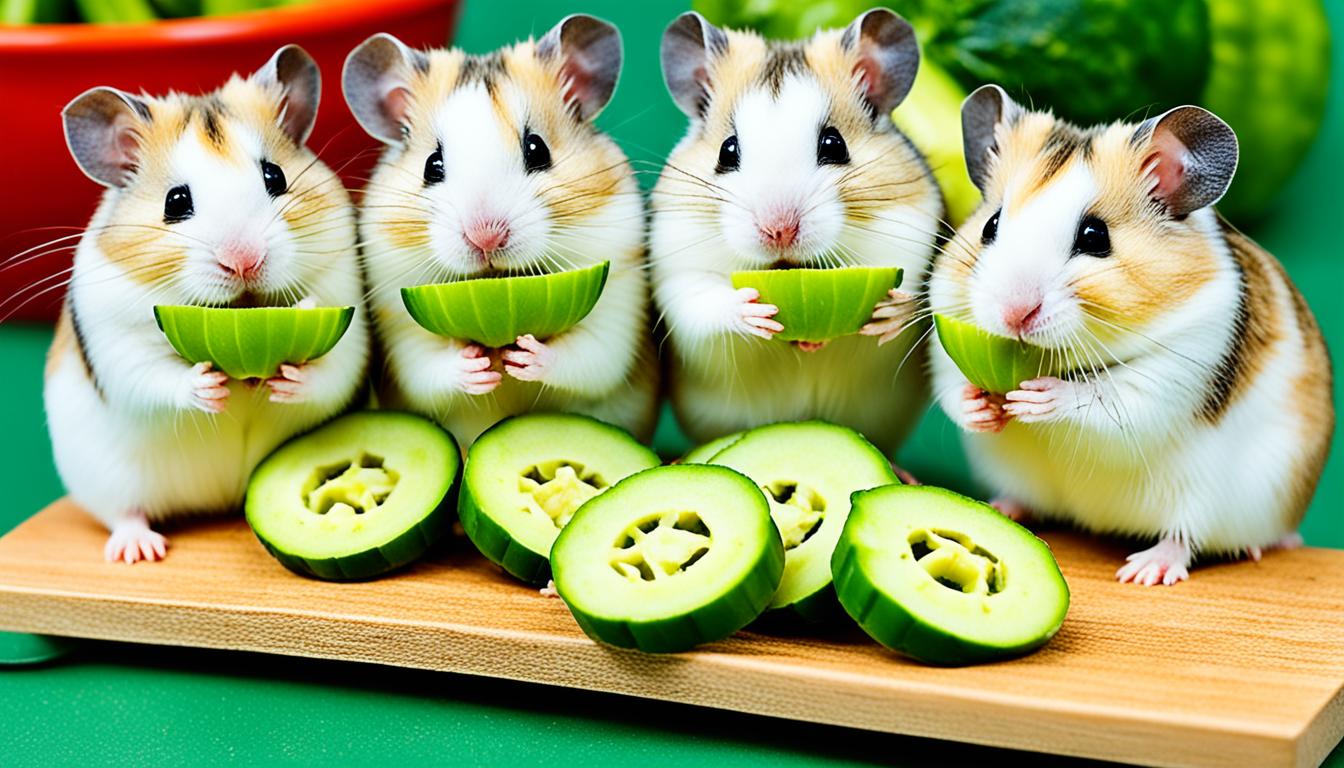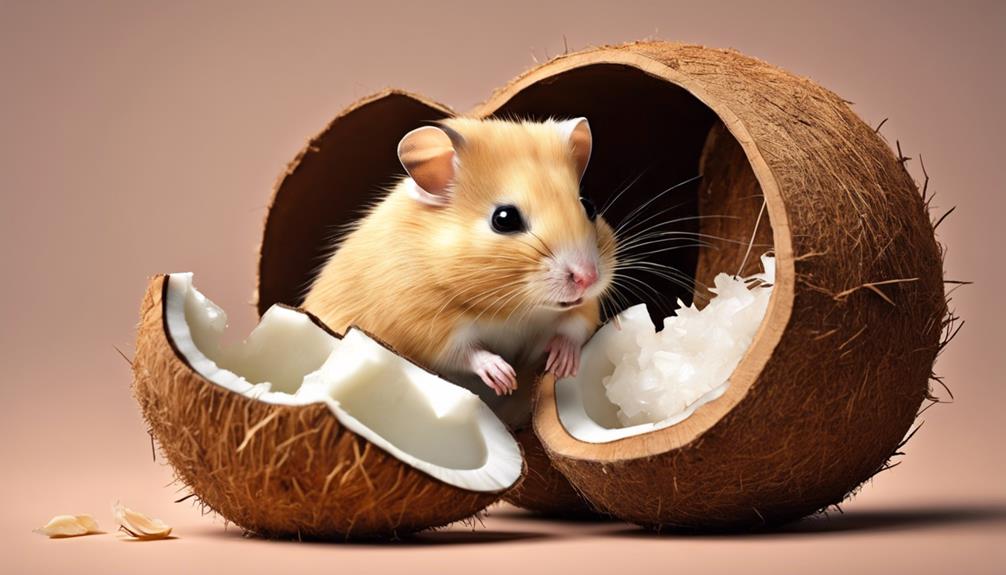When feeding hamsters orange treats, it is important to be mindful of the potential impact on their health and digestion. While oranges provide essential vitamin C and fiber, their high acidity means moderation is crucial. To safely give oranges to hamsters, always remove seeds and peel, wash them thoroughly, and cut into small pieces to prevent choking. Keep a close eye on them for any adverse reactions such as stomach upset, and consider safer alternatives like apples or blueberries.
Remember, a balanced diet is vital for our hamsters' wellbeing.
Key Takeaways
- Choose safer alternatives like apples, carrots, blueberries, and strawberries for hamsters.
- Remove peel, seeds, and wash thoroughly before cutting oranges into small, bite-sized pieces.
- Monitor hamsters closely for signs of tummy distress like diarrhea after introducing oranges.
- Provide small portions of treats to prevent digestive issues and offer nutritional variety.
- Seek veterinary consultation if hamsters show adverse reactions to oranges for prompt care.
Benefits of Oranges for Hamsters
Oranges offer valuable benefits for hamsters, enriching their diet with essential vitamin C and natural sugars to support their immune system and provide a tasty treat. Vitamin C is crucial for hamsters as they can't produce it themselves, making oranges a great source to boost their immune system. The natural sugars in oranges can serve as a delightful occasional treat for hamsters, adding variety to their diet. Additionally, the fiber content in oranges can aid in digestion for these small creatures, promoting overall gut health.
When considering incorporating oranges into a hamster's diet, moderation is key. While oranges can be a healthy addition, they should be given in small, occasional pieces to prevent any digestive issues. Balancing treats like oranges with their regular pellet diet ensures that hamsters receive the necessary nutrients without overindulging. By offering oranges in moderation, hamsters can enjoy the benefits without compromising their overall well-being.
Safe Serving Sizes for Hamsters
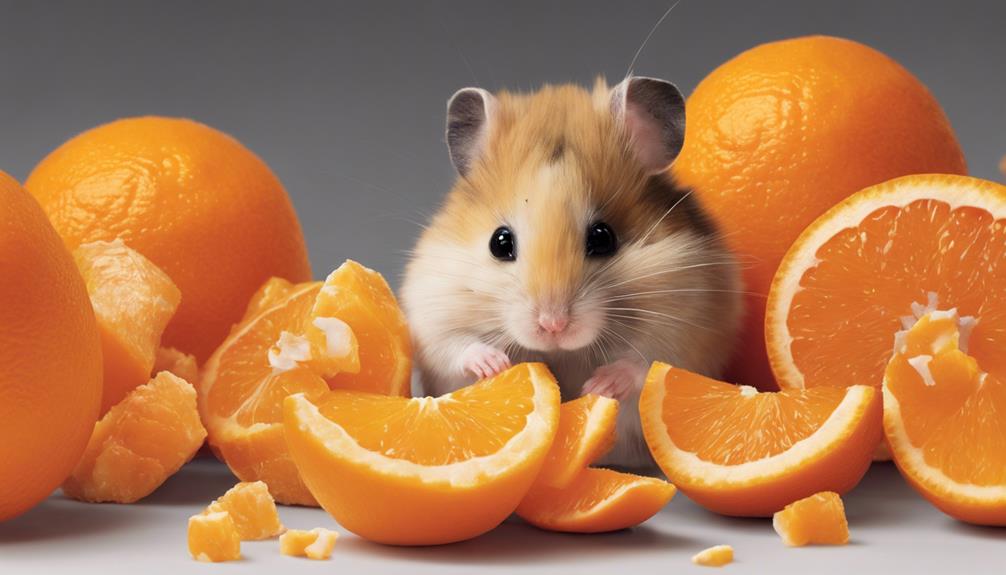
To ensure the well-being of your hamster, it is vital to understand the appropriate portion sizes when offering them treats. Hamsters love fruits, but when it comes to oranges, it's best to avoid them due to their high acidity that can upset your pet's tummy. Opt for safer alternatives like apples, carrots, blueberries, and strawberries to keep your hamster healthy and happy. When it comes to serving sizes, it's crucial to remember that hamsters are tiny creatures with small stomachs. Here's a simple guide to help you navigate the right portion sizes for your furry friend:
| Fruit Type | Serving Size |
|---|---|
| Apples | 1 small slice |
| Carrots | 1 baby carrot |
| Blueberries | 2-3 berries |
| Strawberries | 1 whole berry |
Preparing Oranges for Hamsters
When preparing oranges for hamsters, it's essential to thoroughly remove the peel and seeds to ensure their safety and well-being. Always wash the oranges thoroughly to eliminate any pesticides or residues that could be harmful to your furry friend.
Cut the oranges into small, bite-sized pieces to prevent choking hazards for hamsters. Due to the high acidity of oranges, it's crucial to limit these treats to occasional small portions.
Keep a close eye on your hamster and monitor for any signs of digestive issues after introducing oranges into their diet. By following these steps and preparing fresh oranges in the right way, you can offer your hamster a tasty and healthy treat that they'll enjoy.
Monitoring Hamster Reactions to Oranges
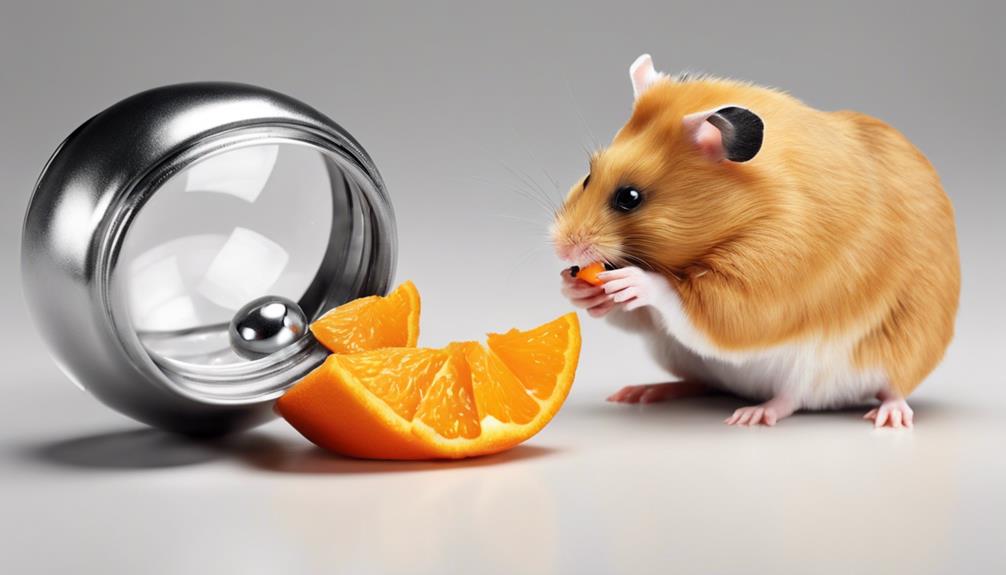
After properly preparing oranges for hamsters, it's important to closely monitor their reactions to the new treat to ensure their well-being and health. When introducing oranges as an occasional treat, observe any signs of tummy distress such as diarrhea, which could indicate digestive issues. Keep an eye on your hamster's appetite, behavior, and droppings for any changes after feeding oranges.
If you notice adverse effects or behavior changes, promptly remove oranges from their diet. It's crucial to document how your hamster responds to oranges to determine if they can safely enjoy this food. In case of any concerning symptoms, such as persistent digestive problems or unusual behavior, seek immediate veterinarian consultation.
Monitoring your hamster's reactions to oranges is essential in maintaining their well-being and ensuring that they can safely incorporate new foods into their diet.
Alternative Treat Options for Hamsters
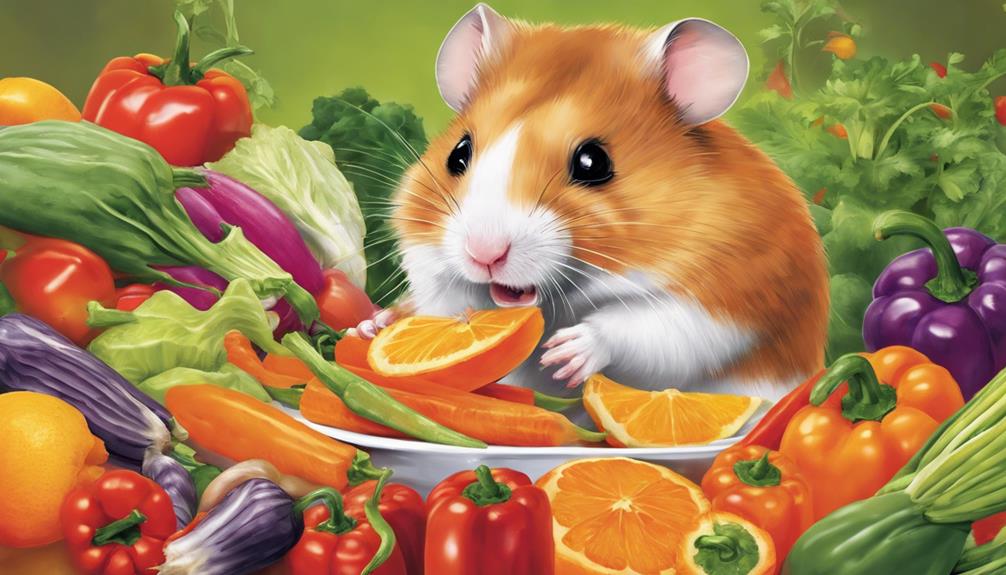
Consider providing hamsters with a variety of safe treat options to add nutritional variety to their diet. Along with hamster mix, fresh fruits, and veggies, you can offer small pieces of unsweetened whole grain bread or plain cereals as treats. These options are safe for hamsters and can be given in moderation to prevent dietary issues.
For protein sources, consider occasional treats like cooked eggs or mealworms, which can help meet their dietary needs. Dwarf Hamsters, in particular, benefit from a diverse diet that includes different types of treats.
It's crucial to avoid sugary foods like sweets, chocolate, or high-sugar treats, as these can lead to health problems for hamsters. By including a mix of safe and nutritious treats in their diet, you can keep your hamster happy and healthy while providing them with a range of flavors and textures to enjoy.
Frequently Asked Questions
Can Hamsters Have Orange Treats?
We need to remember that hamsters shouldn't have orange treats or any citrus fruits. These fruits are too acidic and can lead to tummy issues and diarrhea in hamsters.
It's crucial to avoid giving them oranges, tangerines, lemons, or grapefruits as treats. Always put your hamster's digestive health first by steering clear of citrus fruits in their diet.
Prioritize their well-being and choose safer treat options for your furry friend.
What Treats Can Hamsters Eat?
We can offer hamsters a variety of treats such as sugarless breakfast cereals, greens, seeds, carrots, apples, raisins, peas, pepper, and cucumbers in moderation.
However, it's crucial to avoid dried fruits and vegetables high in sugar.
While these treats can be enjoyable, they should complement a balanced pelleted diet to ensure hamsters receive adequate nutrition.
Can I Feed My Hamster Sweets?
We should avoid feeding hamsters sweets to prevent health issues like obesity and digestive upset. Chocolate is toxic to them. Stick to nutritious treats like whole grain bread or small pieces of fruit.
Consult a vet before introducing new foods to your hamster. Remember, their well-being is our top priority. Let's ensure our furry friends stay healthy and happy by making smart choices when it comes to their diet.
How Often Should You Give Hamsters Treats?
We should give hamsters treats occasionally to maintain their balanced diet. It's essential to offer treats in small amounts to prevent digestive issues and obesity.
Monitoring our hamster's weight and overall health can help determine the frequency of treats. Typically, giving treats once or twice a week is sufficient for most hamsters.
Limiting treats is crucial to avoid health problems and ensure our furry friends stay happy and healthy.
Can I Feed My Hamster French Fries if They Can Safely Have Orange Treats?
Feeding hamsters french fries safely is not advisable, even if they can safely have orange treats. While it’s tempting to give your pet a taste of your snack, hamsters have specific dietary requirements. Stick to approved fruits and veggies for hamsters, and avoid giving them human food, such as french fries.
Conclusion
In conclusion, incorporating oranges into a hamster's diet can provide a tasty and nutritious treat. Remember to offer oranges in moderation and monitor your hamster's reaction closely.
By following safe serving sizes and properly preparing the fruit, you can ensure your furry friend enjoys this citrusy snack without any issues.
Remember, a happy hamster is as content as a clam in a cozy shell.
